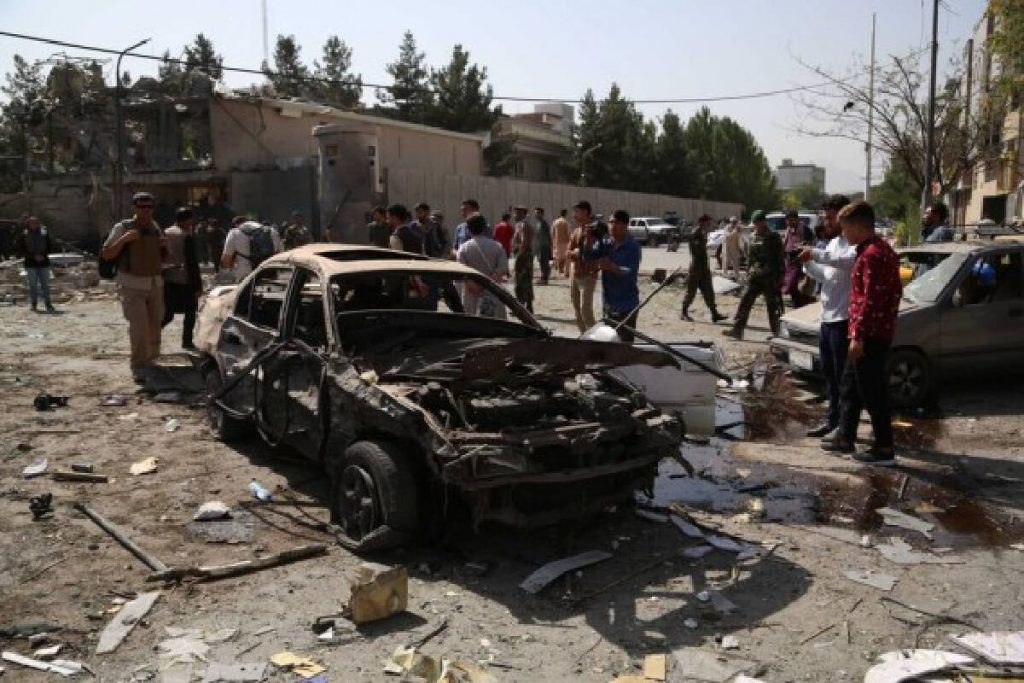Permanent Representative Recommends Joint Session with Human Rights Council, as Military Advance Exacts Record Civilian Casualties

Swift action must change the current catastrophic trajectory of violence and humanitarian suffering in Afghanistan, briefers warned the Security Council today, as delegates called for an immediate halt to the recent Taliban offensive that has led to record numbers of civilian casualties and targeted killings.
With Afghanistan at a dangerous turning point, a united Security Council must seize the current opportunity to quickly reinvigorate peace talks and prevent the crisis from spilling across national borders, said Deborah Lyons, Special Representative of the Secretary-General and Head of the United Nations Assistance Mission in Afghanistan (UNAMA). “Ahead lies either a genuine peace negotiation or a tragically intertwined set of crises,” she said: “an increasingly brutal conflict combined with an acute humanitarian situation and multiplying human rights abuses.”
She urged the Council to issue an unambiguous statement that attacks against cities must stop now. Members engaging in talks with the Taliban Political Commission should insist on a general ceasefire and resumption of negotiations while reiterating that the international community will not recognize a Government imposed by force. These next weeks could be decisive, she said, pressing the Council to set aside differences and send a strong signal that the fighting must stop and parties must negotiate. Otherwise, she warned, there may be nothing left to win.
Shaharzad Akbar, Chairperson of the Afghanistan Independent Human Rights Commission, said the ongoing storm of atrocities is costing lives and spreading terror, pushing the possibility of peace further away. Gains made are under attack and rapidly shrinking, she said, adding that the rights of women and girls, including access to education, markets and basic health services, are diminishing. Access to information and the freedom of expression is equally concerning, as independent media in the provinces is shut down, she said.
She called on the Council, the United Nations and international human rights mechanisms to respond with a greater sense of urgency, drawing attention to the impact on Afghanistan, the region and the world if the violence continues. The Council still has leverage to prevent a catastrophe by using all the tools at its disposal. She expressed support for the call by the Government for a special session of the Human Rights Council and for creating a fact-finding mission that would, among other things, identify perpetrators of human rights violations. “We cannot wait and watch history repeat itself,” she warned.
Offering a national perspective, Afghanistan’s representative said that with the departure of foreign troops nearly complete, the Taliban and their foreign associates are fighting to turn the country, once again, into a safe haven for transnational terrorism. Indeed, the scale, scope and timing of the Taliban’s military offensive is akin to an invasion unprecedented in the last 30 years. Since mid-April, these groups have launched more than 5,500 attacks in 31 of 34 provinces. Twenty groups — including Al-Qaida and Islamic State of Iraq and the Levant (ISIL/Da’esh) — are fighting alongside the Taliban against the Afghan population and security forces.
“This is not a civil war, but a war of criminalized and terrorist networks fought on the backs of Afghans,” he warned. He called on the Council to use the effective implementation of sanctions under resolutions 1988 (2011) and 2513 (2020) as a way to pressure the Taliban to engage in meaningful peace talks ahead of an 11 August meeting in Doha. He also asked it to convene a special session with the Human Rights Council to avert a ruinous level of human rights violations and the large-scale displacement of civilians.
In the ensuing discussion, Council members condemned recent violence and called for greater humanitarian access and tangible progress at forthcoming peace talks. Several raised grave concerns about human rights violations, including against women and girls, with many insisting on their full participation in peace talks. Reiterating that there is no military solution to the war, others said a Government installed by force will not be recognized.
“We will not accept a military takeover of Afghanistan,” the United States representative asserted, adding that the Taliban will become an international pariah if it chooses such a path. International support to any future Government depends on adherence to inclusive participation, fair elections, human rights protections, counter-terrorism commitments and compliance with international law, he said, pledging his country’s continued support for the Afghan people, as it continues withdrawing its troops and going forward.
Niger’s delegate, speaking also on behalf of Kenya, Tunisia and Saint Vincent and the Grenadines, said the two sides must respect a ceasefire and give the Doha talks a better chance of success. Meanwhile, the Council must prioritize incentives and red lines that will compel the Taliban to stop using terrorism for political ends. He warned that a return to chaos in the country would signal to terrorists that they can gain legitimacy and power through force.
Echoing concerns about the deteriorating situation, especially with the withdrawal of foreign troops, the Russian Federation’s representative also pointed to record increases in drug production and rising refugee populations. In addition to advancing peace negotiations, all international and regional efforts must now be consolidated, with the Afghan people deciding on the political makeup of their Government.
China’s delegate added that all efforts must work to prevent a civil war, advance peace talks and prevent terrorist forces from gaining strength. Interference by external Powers will fail, he warned, calling for more transparency with neighbouring countries.
The representative of India, Council President for August, spoke in his national capacity, saying that the time has come for the Council to decide on how to bring about a permanent ceasefire and an immediate cessation of violence. “Anything short of this will constitute a serious threat to regional peace and security,” he said, reiterating support for an inclusive, Afghan-led, -owned and ‑controlled peace process.
